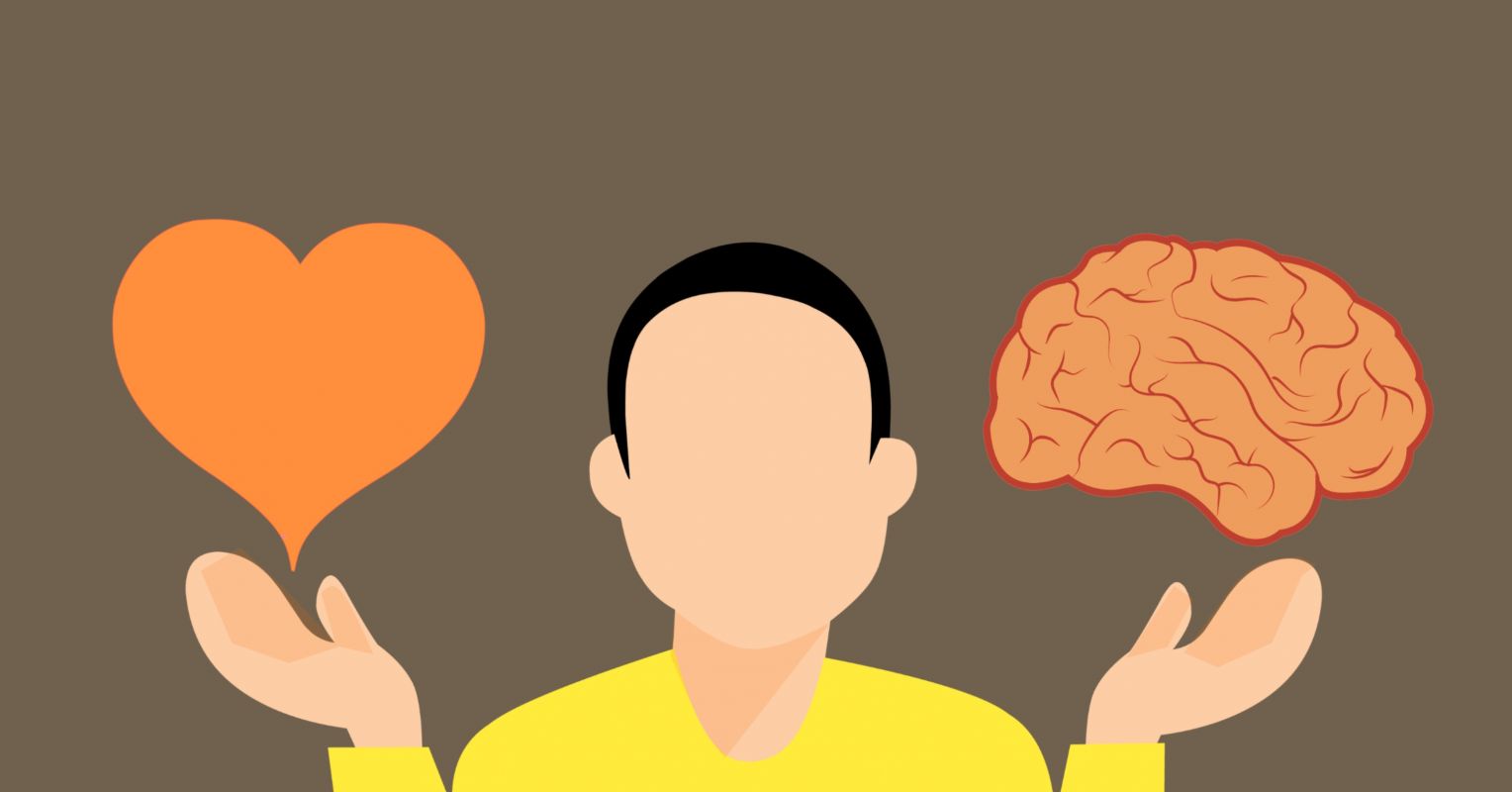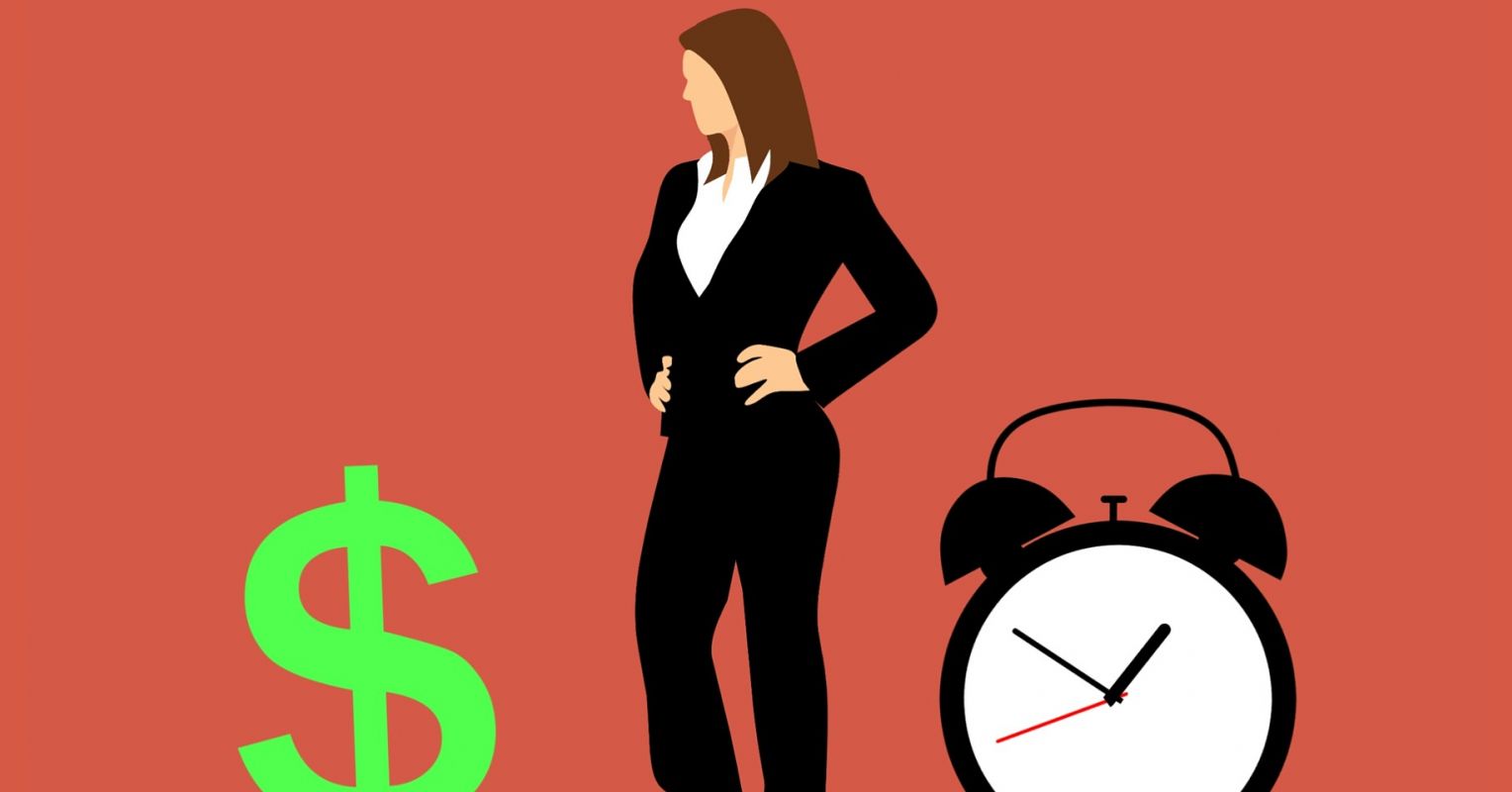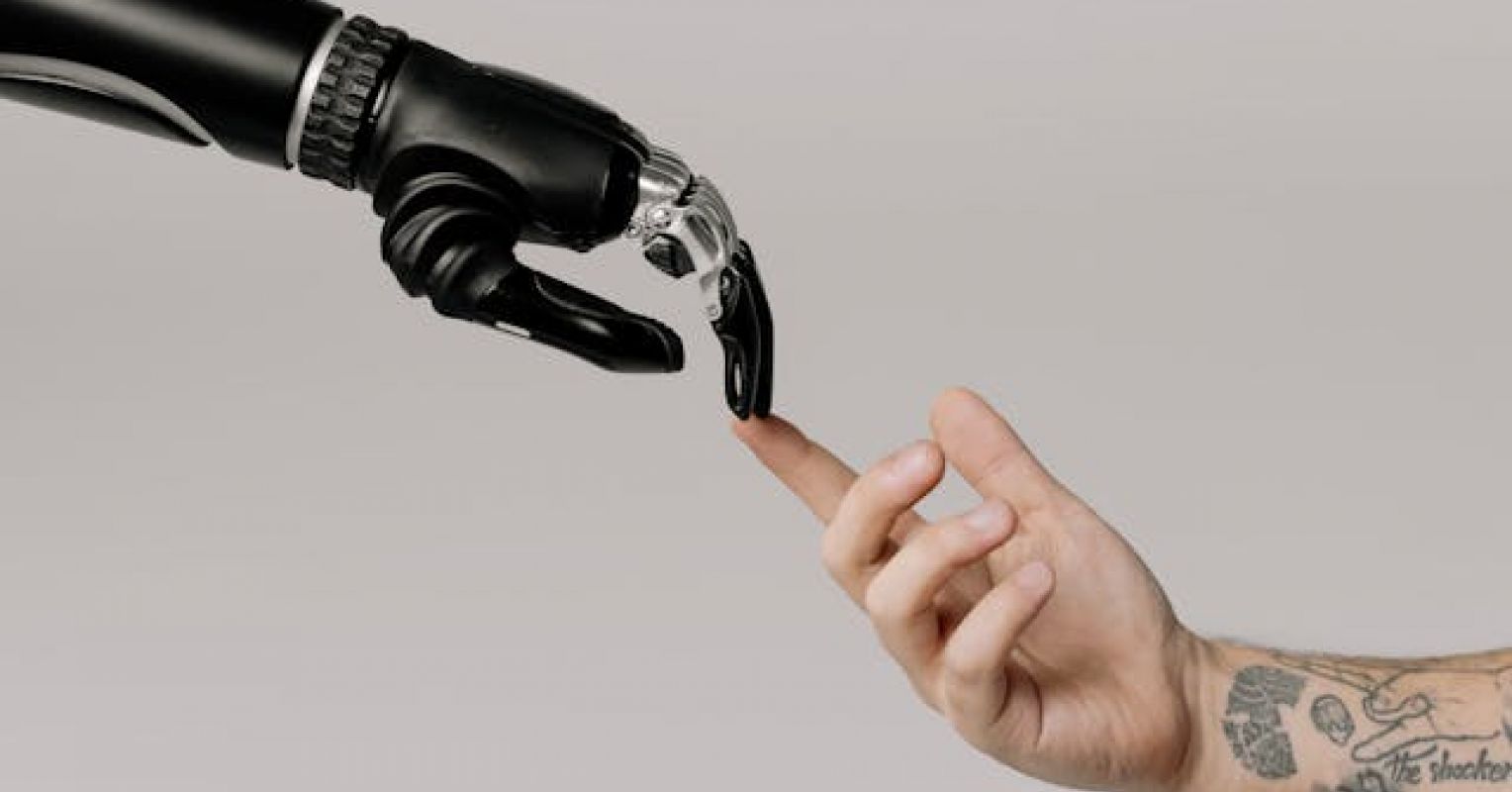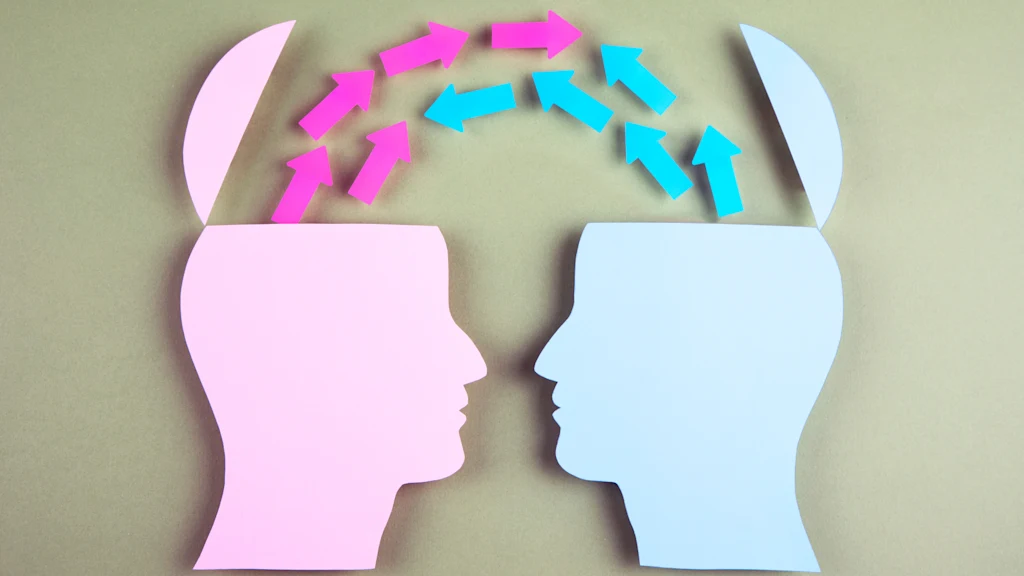#decision-making
#decision-making
[ follow ]
Digital life
fromwww.theguardian.com
1 day agoTell us: have you ever used AI to navigate everyday life and social relationships?
People use chatbots to handle social interactions and major life decisions, including drafting sensitive messages, seeking relationship or job advice, with secure anonymous submissions invited.
fromEntrepreneur
2 days agoHow to Never Get Burned By a Bad Business Decision Again
The car under the dealership's lights is shiny. The salesman is a smooth talker. Your instinct is "This is the right car for me." This is where business people get into trouble, not only with cars, but with hiring and business partnerships. First impressions can be dangerously misleading, and emotional decisions rarely hold up under scrutiny. The car that looks good and is polished is almost always hiding some mechanical failures, rust and poor accident history.
Business
fromSan Jose Inside
1 week agoHow To Manage Choice Fatigue In Online Poker
Online poker is a game of intensity, wit and strategy. It demands quick thinking and constant decision-making. Players need to have an astute ability to use their intuition and evaluate all the given information under immense pressure. For most players, their dips in performance around the table are primarily affected by choice fatigue rather than the presence of excellent opponents or bad luck.
Poker
fromEntrepreneur
1 week agoHow Leaders Unknowingly Make Themselves the Bottleneck
You've hired smart people, and you've invested in tools. You've also restructured more than once. Given all these, on paper, everything should work. But the reality is different. Decisions take longer than they should, and ownership gets blurred. Teams move, then stall, then circle back. You step in more than you want to, not because you enjoy it, but because progress depends on you doing so.
Business
fromBig Think
1 week agoCarl Sagan's 9 timeless lessons for detecting baloney
Making good decisions doesn't merely rely on how much information we take in; it also depends on the quality of that information. If what we've instead ingested and accepted is misinformation or disinformation - incorrect information that doesn't align with factual reality - then we not only become susceptible to grift and fraud ourselves, but we risk having our minds captured by charismatic charlatans. When that occurs, we can lose everything: money, trust, relationships, and even our mental independence.
Philosophy
Poker
fromFortune
1 week agoBillionaire Jenny Just says she could have saved '10 years of losses' if she had learned this skill sooner from playing poker | Fortune
Learning poker accelerates mastery of decision-making under uncertainty, improving probability assessment, risk management, capital allocation, and emotional control for better business outcomes.
Mental health
fromFortune
1 week agoThe founder of $400 million company Knix sees a hypnotherapist to 'rewire' her brain and work through her fear of failure | Fortune
Joanna Griffiths uses hypnotherapy to rewire reactions, reduce fear of failure, and enable more optimistic, smarter decision-making while leading Knix.
Silicon Valley
fromSilicon Canals
1 week ago9 things people over 60 still do before trusting advice from others that younger people are too quick to dismiss - Silicon Canals
People over 60 vet advice through detailed skepticism—probing failures, asking redundant questions, and following slower processes—yielding deeper learning younger generations often miss.
Silicon Valley
fromSilicon Canals
2 weeks agoPsychology says if you check movie reviews before watching you probably display these 9 distinctive traits - Silicon Canals
People who check reviews before watching movies tend to be highly conscientious, detail-oriented, time-conscious, and thorough, often researching extensively across decisions.
fromEntrepreneur
2 weeks agoHow Your Intuition Can Become Your Biggest Bottleneck
The founder of one of our portfolio companies created a company with approximately $200 million in revenue purely on instinct. The founder had spent a large amount of time around the products and relationships with customers, so that he could literally go out onto the production floor and identify the machine that would be broken down in a week, and he would reject a price recommendation from his financial staff because "it didn't feel right!"
Startup companies
fromNonprofit Quarterly | Civic News. Empowering Nonprofits. Advancing Justice.
2 weeks agoBalancing Transparency and Timeliness in Organizational Decision-Making | Nonprofit Quarterly | Civic News. Empowering Nonprofits. Advancing Justice.
Dear Transparency-Committed Reader, You're not alone. So many of us want decision-making to reflect our collective values (like transparency, care, and shared power), but it's hard to actually put those values into practice. That gap between what we believe and how we decide can be frustrating. And getting stuck in the process is a common concern I hear from groups. I am happy to share, though, that decision-making doesn't have to be a nightmare.
Fundraising
fromSilicon Canals
2 weeks agoWarren Buffett's advice for building wealth starts with this one daily ritual - Silicon Canals
"Read 500 pages... every day. That's how knowledge works. It builds up, like compound interest." When Warren Buffett dropped this wisdom bomb, most people probably thought he was exaggerating. Five hundred pages? Every single day? Who has time for that? But here's the thing about Buffett that most people miss. The Oracle of Omaha isn't just talking about reading as some nice-to-have habit. For him, reading IS the work. It's the foundation of everything he's built, from turning Berkshire Hathaway into a $900 billion empire.
Business
fromPsychology Today
2 weeks agoWhy You Can't Rely on Your Own Morality Alone
What does it mean to say that you are restrained solely by your own morality, by your own mind? The conscience is often described as an inner voice telling us what to do when others may be opposed. A moral compass is that which distinguishes between right and wrong, good and bad. Our conscience, our moral compass, sets the groundwork for doing the right thing.
Philosophy
fromScary Mommy
2 weeks agoWhat Watching 'The Pitt' Taught Me About Parenting
To me, the drama of has a lot of parallels with modern-day parenting. Sure, putting a Paw Patrol Band-Aid on your kid's scraped knee isn't exactly the same as treating a degloved foot (although judging by the screaming, you wouldn't know it). And betting on where a runaway ambulance will end up is higher stakes than betting on which child will crawl into your bed tonight.
Television
Productivity
fromSilicon Canals
2 weeks agoQuote of the day by James Clear: "Every action you take is a vote for the type of person you wish to become" - Silicon Canals
Every small daily action functions as a vote for the person one becomes; consistent tiny choices compound into identity and long-term outcomes.
fromPsychology Today
2 weeks agoThe Chess Game of Life: Why Every Move Matters
I want to ask you a question: Do you think the choices you make today will have any impact on your future? If we stop to think about it, most of us would say, "Yes, of course." But we don't actually live that way. We tend to view our days as a series of isolated events-a mishmash of choices that seem totally inconsequential in the moment. We choose what to eat, what to watch, or how to react to a spouse, assuming these small moments vanish as soon as they pass.
Philosophy
fromMail Online
2 weeks agoPsychologist reveals easy-to-dismiss signs of 'emotional exhaustion'
Emotional exhaustion is that feeling you get in the lead-up. That sense of dread in the morning... All the things you used to do absolutely fine and in your stride suddenly feel like you can't cope with them. A lot of people talk about this inability to concentrate, which impacts the ability to make even small decisions, like not being able to think of what to wear.
Mental health
fromMountaingoatsoftware
3 weeks agoEstimating and Planning in Agile: Why They Still Matter in 2026
I hear the same stories again and again. Estimates treated as promises. Plans turned into contracts. Teams punished for being wrong rather than rewarded for learning. Given experiences like those, it's understandable that many teams conclude the solution is to eliminate estimating and planning altogether. I think that's a mistake. Estimating and planning still matter-not because the future is predictable, but because it isn't. They matter because teams and organizations still have to make decisions about what to work on
Software development
fromEntrepreneur
3 weeks agoWhy the Entrepreneurs Who Suffer Early Win Bigger Later
In an era obsessed with shortcuts, overnight success, and polished social media profiles, adversity is often treated as something to avoid. Something unfortunate. Something that signals failure. That assumption is completely wrong. Adversity is not a flaw in the entrepreneurial journey; it is, in fact, the training ground, the pressure that sharpens one's judgment, accelerates their adaptability and forges the kind of resilience no accelerator, MBA or funding round can manufacture.
Venture
fromRaptors Rapture
1 month agoImmanuel Quickley eerily mirrors the turbulent presence of this Raptors alum
Immanuel Quickley's 2025-26 season averages include 16.3 points on 42.4% shooting, 34.6% from three, 79.1% from the free throw line, along with 4.2 rebounds, 6.1 assists, and 1.1 steals per game in 41 starts for the Raptors so far. At first glance, those numbers aren't terrible - in fact, they're quite passable in most respects. But it's one thing to interpret metrics, and another to focus on the eye test and in-game assessments to draw conclusions.
National Basketball Association
fromPsychology Today
1 month agoHow AI Reshapes the Battle of Persuasion
We live in a paradox. Never before has humanity had access to more information, faster. Yet our decisions, from what we eat to whom we vote for, what we watch and who we date, remain stubbornly resistant to facts alone. Public health campaigns armed with statistics fail to shift behavior. Climate science, however substantive, struggles to ignite action. Heavy economic data rarely changes minds about policy. The uncomfortable truth? We are not the rational creatures we pretend to be.
Public health
fromFast Company
1 month agoHow to balance intuition and strategic thinking
Balancing gut feelings with hard data isn't a soft skill. It's a strategic advantage. In an era where AI, automation, and ubiquitous dashboards flood us with metrics, it's tempting to believe that better spreadsheets alone will yield better decisions. But our most consequential choices rarely emerge from a cell in column D. They arise from an ongoing negotiation between intuition and rational analysis.
Artificial intelligence
fromTNW | Insider
1 month agoWhere tech leaders now choose to meet
That model no longer fits how tech leaders work today. Over the past years, I have spent time in conversations with founders, executives, and operators who carry real responsibility inside their organizations. As a community builder, I often speak with them before they commit to attending events. Their questions are direct. They want to know who will be in the room, how discussions are structured, and whether the environment allows honest exchange.
Artificial intelligence
fromPsychology Today
1 month agoThe Years That Give Back
I like it because the week before my birthday I swiftly declined a business opportunity that I knew was not a good fit for me. The conversation went like this: The woman on the phone said, "Take a few weeks to mull it over." I replied, "I am most appreciative of your time and don't want to waste it. I will pass on the opportunity. Thank you."
Mental health
fromMedium
1 month agoWhen AI Thinks for Us, We Forget How to Think
Harry frowned. "I'm not seeing the value in it. Can you explain it clearly? Is there any other solution?" Tom leaned in. "This isn't making much sense. You could try this instead. It's simpler." Leina sighed. "Next time you present, put more thought into your reasoning." Meanwhile, Ron trembled with anxiety. He wanted to make a point but ended up rambling. This was his second failed attempt at defending his ideas.
Artificial intelligence
fromPsychology Today
1 month agoWhen to Leave a Relationship
Knowing when to leave a relationship is not a dramatic moment of collapse. More often, it is a quiet reckoning. A slow accumulation of truth. People imagine that leaving happens because love disappears or conflict explodes. In reality, many people leave because the daily effort of holding themselves together inside the relationship becomes weightier than the fear of being alone.
Relationships
fromFast Company
1 month agoHow the 'Rule of 3' framework simplifies tough decisions
Why not A? A is usually the default for most people. The thing you're already doing. The path of least resistance. It doesn't need your help. What you need are alternatives. Then comes the second step, and this is where most people stop thinking too soon. Now, for each path, think through: First-order effects Second-order outcomes And third-order consequences And then, and this matters, choose the path with the most meaningful but least life-changing consequences.
Philosophy
fromPsychology Today
1 month agoDo You Feel Trapped? How to Break Out
Maybe it's a job you hate or that no longer gives you satisfaction. Or an intimate relationship where the emotional connection has long since frayed, and you're now living parallel lives. Or, perhaps a friendship that was once vital but has now been downgraded to an acquaintance at best, or one that's unbalanced, where only your periodic outreach keeps it alive.
Mental health
fromBusiness Matters
1 month agoHow Rupon Anandanadarajah Helps SaaS Companies Outgrow Founder Intuition
Most successful SaaS companies begin with strong intuition. Founders understand the problem deeply. Early decisions are fast, informal, and often correct. The closeness between insight and action creates momentum that is hard to replicate later. As companies grow, that intuition becomes harder to rely on. Teams expand, customers diversify, and systems become more complex. Decisions that once felt obvious now feel risky. Many organisations respond by pushing harder on the same instincts that drove early success. Rupon Anandanadarajah has seen where that leads.
Startup companies
fromHuffPost
1 month agoYou've Heard Of FOMO, But What Is 'FOBO'? Here's How To Spot This Damaging Issue.
"FOBO, or fear of a better option, is the anxiety that something better will come along, which makes it undesirable to commit to existing choices when making a decision," author and venture capitalist Patrick McGinnis told HuffPost. "This specifically refers to decisions where there are perfectly acceptable options in front of us, yet we struggle to choose just one." McGinnis coined the term FOBO, as well as FOMO, back in 2004 when he was a student at Harvard Business School and wrote an article titled "Social Theory at HBS: McGinnis' Two FOs." He believes that FOBO is "an affliction of abundance." Our on-demand world overwhelms us with seemingly endless choices, thus compelling us to keep all our options open and hedge our bets.
Psychology
fromFast Company
1 month agoWhat a meltdown in the wine aisle taught me about New Year's resolutions
Last December, I was standing in front of a wall of bottles, paralyzed. Not because I don't like wine. I do. I was paralyzed because the entire experience was designed to make me feel small. The sommelier energy, the gatekeeping language, the implied message that if I couldn't name the terroir, I didn't deserve a good bottle. So I did what I always did: grabbed the same safe choice, went home, and told myself I'd "branch out next time."
Venture
Psychology
fromLondon Business News | Londonlovesbusiness.com
1 month agoDecision fatigue: Why too many choices can be overwhelming - London Business News | Londonlovesbusiness.com
Humans make over 35,000 decisions daily, causing decision fatigue that impairs cognitive function, increases stress, and is shaped by emotions, biases, and social influence.
fromAll Singles And Married
1 month ago10 Questions You Must Answer Together Before Love Turns Into Regret.
As a marriage clinician and family life mentor, I have sat with couples whose eyes once sparkled with romance but now brim with regret. Not because they didn't love each other, but because they never asked the questions that love was supposed to answer. Many marriages don't collapse suddenly. They bleed slowly. They suffer not from hatred, but from silence.
Relationships
fromThe Atlantic
1 month agoHow to Follow the Right Star
A much-loved Christmas story tells about the journey of the Magi-the three Wise Men who came seeking the baby Jesus in Bethlehem. "Where is He who has been born King of the Jews?" they ask. "For we have seen His star in the East and have come to worship Him." The essence of the tale is their unshakable faith in a worldly sign-a star in the sky-which the Magi trusted would guide them to the savior of the world.
Mental health
Artificial intelligence
fromLondon Business News | Londonlovesbusiness.com
1 month agoFrom data to decisions: How AI is enhancing strategic thinking - London Business News | Londonlovesbusiness.com
AI transforms strategic thinking by enabling data-driven, less biased, real-time decision-making while supporting leaders rather than replacing them.
National Hockey League
fromMaple Leafs Hotstove
2 months agoCraig Berube on another loss for the Leafs in Nashville: "Our team was a lot better with the puck, but there were self-inflicted mistakes"
Team improved puck movement but lost because of avoidable mistakes, poor decision-making, and insufficient shot volume.
fromPsychology Today
2 months agoThe Affective Trade-Offs We Make
In my conception of the Affect Management Framework (AMF; Haynes-LaMotte, 2025), affect is defined as an evaluative common currency in consciousness that is attached to the brain's goals and can be swayed by a combination of interoceptive senses, meaning-making processes, the processing dynamics of exteroceptive senses (sight and hearing), and the proprioceptive signals used to control the body. My previous post provided an overview of the framework. This post will explore additional principles of the AMF.
Psychology
fromPsychology Today
2 months agoYou Don't Have to Worry About Giving Your Best Shot
Yesterday I drove my son to work and, since we arrived early, we sat in the car and chatted. I'm not sure how we got onto the topic, but quite quickly, we began discussing the idea that the things people do are always the best they can do given who they are, what they know, and the circumstances they find themselves in.
Psychology
[ Load more ]




















